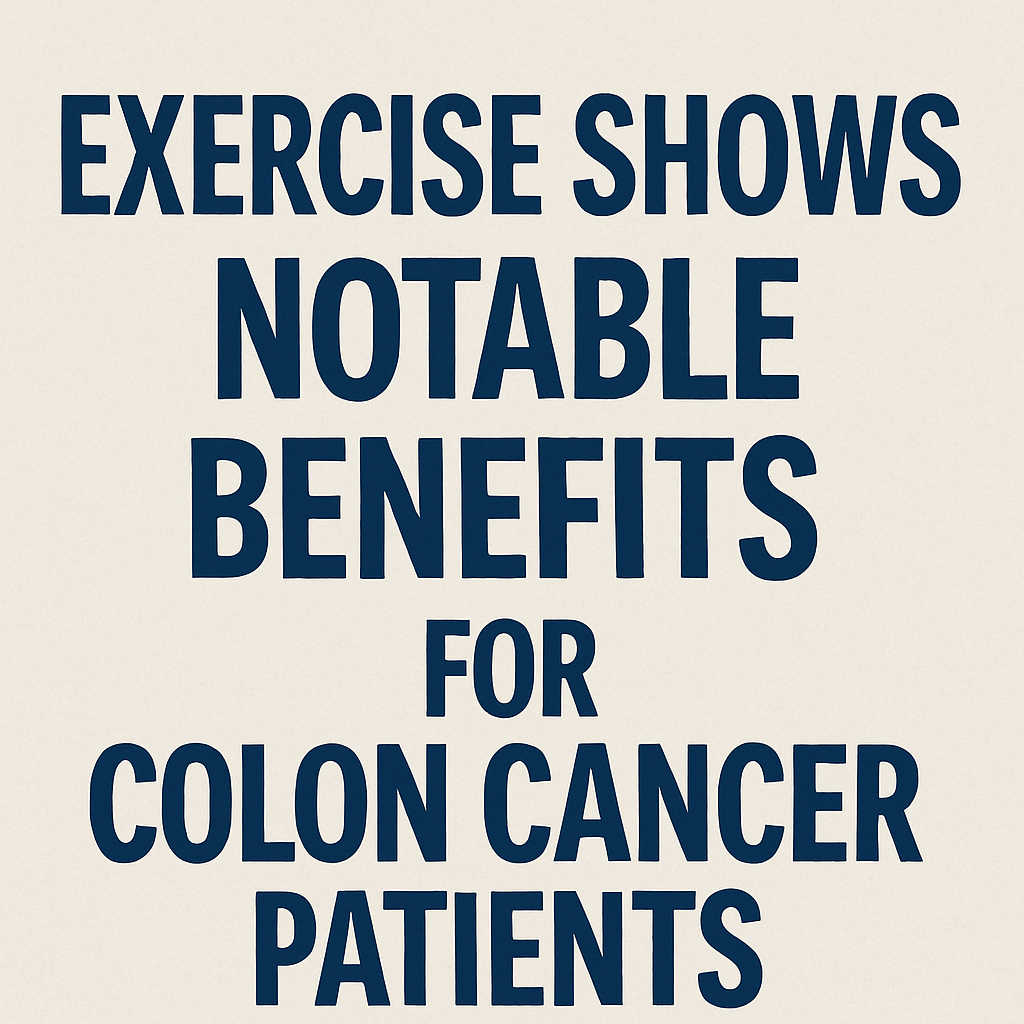Exercise Shows Notable Benefits for Colon Cancer Patients

A groundbreaking international study has unveiled compelling evidence that a three-year structured exercise program significantly enhances survival rates among colon cancer patients while also delaying disease recurrence. This pioneering research, which is the first of its kind, highlights the potential of physical activity to rival the effects of some pharmaceutical treatments.
A Comprehensive Approach to Cancer Care
Presented at the American Society of Clinical Oncology’s (ASCO) annual meeting in Chicago and published in the prestigious New England Journal of Medicine, the study involved a diverse cohort of 889 patients diagnosed with treatable colon cancer who had completed chemotherapy. This research project spanned multiple nations—including Canada, Australia, the United Kingdom, Israel, and the United States—underscoring its global relevance.
The trial’s design employed a rigorous randomized controlled methodology, marking it as a high-quality source of evidence. Participants were split into two groups: one engaged in a structured exercise program, while the other received a standard educational booklet focused on promoting fitness and nutrition.
Details of the Exercise Intervention
In the experimental group, participants worked with fitness coaches, attending sessions biweekly for the first year, followed by monthly check-ins over the next two years. This model was designed not only to increase physical activity but also to instill a sense of accountability and motivation among patients. As reported by study co-author Dr. Christopher Booth, this approach led to substantial lifestyle changes.
For example, participants such as Terri Swain-Collins from Kingston, Ontario, adopted simple yet effective routines, walking for approximately 45 minutes multiple times a week. She noted the importance of regular interaction with her coach, stating that it ensured she remained active and committed to her health.
Results: A Paradigm Shift in Cancer Care
After an extensive follow-up period of eight years, the study revealed that participants in the structured exercise program not only demonstrated heightened physical activity levels compared to the control group, but they also experienced a remarkable 28% reduction in cancer recurrence rates and a 37% decrease in all-cause mortality. While the exercise group reported more muscle strains and similar minor injuries, researchers emphasized that the benefits far outweighed these risks.
“When we saw the results, we were just astounded,” said Dr. Christopher Booth, underscoring the study’s transformative potential for cancer survivors.
Pivotal Changes in Medical Guidelines
The implications of these findings are significant for both healthcare providers and patients. Experts in the field, including Dr. Julie Gralow, Chief Medical Officer of the American Society of Clinical Oncology, stress that exercise coaching should become a recognized standard of care for colon cancer survivors, suggesting a necessary evolution in treatment practices.
Dr. Jeffrey Meyerhardt of the Dana-Farber Cancer Institute noted that until broader implementations occur, patients should be encouraged to enhance their physical activity post-treatment. Such actions not only support personal health but also contribute to a collective push for integrating exercise into cancer recovery protocols.
Investigating the Mechanisms Behind Exercise Benefits
Future research is poised to delve deeper into the biological mechanisms that underlie the beneficial effects of exercise on cancer prognosis. Researchers have collected blood samples from participants to investigate potential biomarkers that could link increased physical activity to improved cancer outcomes. These studies may explore various factors, including insulin regulation, inflammatory responses, and immune system enhancements.
Closing Thoughts
This research not only reaffirms the critical nature of physical activity in health recovery but also positions exercise as a formidable complement to conventional treatment options for colon cancer. As recounted by Kerry Courneya, a co-author of the study from the University of Alberta, the evidence now strongly supports the assertion that exercise positively impacts survival rates, ultimately providing patients with a powerful tool in their health management arsenal.
Swain-Collins has successfully integrated exercise into her daily life beyond the study’s conclusion, a testament to the enduring lifestyle changes that can result from effective coaching and a supportive community.